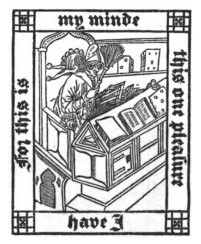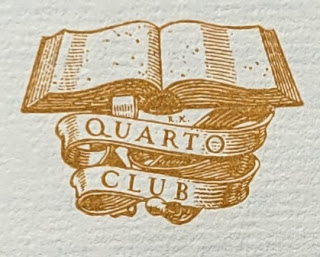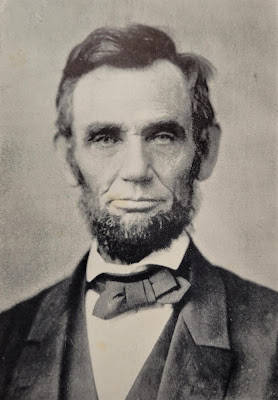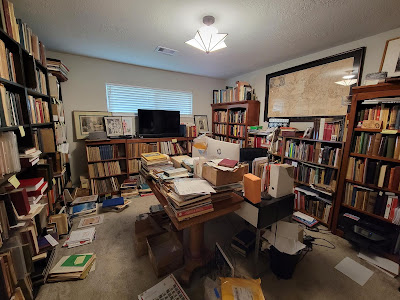My
American Book Collecting blog celebrates its eleventh anniversary on October 24. I almost missed it, but unlike a wedding
anniversary, there would have been no harm, no foul. However, I just received two emails only a
day apart that referenced my August 23, 2014 post on American literature
collector extraordinaire Stephen H. Wakeman (1859-1924). This was certainly unusual, but also reminded
me just how long I’ve been serving up essays to those who enjoy such a meal. I began my blog on October 24, 2011 with a welcoming
post that spelled out my plans:
This blog is dedicated to the history of American book
collecting. Private book collectors will be a primary focus.
However, there are many other kinds of book hunters who will receive attention
such as dealers, rare book librarians, bibliographers, writers, and auctioneers.
My main interest is in the biographical side of
book collecting. The bookplate motto of famous collector A. Edward Newton
exemplifies the spirit of it, "Sir, the biographical part of literature is
what I love most." Stories of association copies, letters,
manuscripts, and photographs are going to be added in abundance. Images
will amplify the stories. This is a forum serious in nature but not blogged
down in detailed collations, bibliographic minutia, or dry lists. All
material is from my own collection unless otherwise noted. Please read,
comment, and share. Amor librorum nos unit!
I’m pleased that I’ve stayed mostly on point with my original intentions. There has been ebb and flow with the number posts
over the years (now at 90 with this one), as I set no firm goal per annum. But I decided early on to make most of them meaty—essays
that could stand alone, not just tidbits or tantalizing appetizers one sees
with many blogs. This decision played
out well when several of them formed the backbone of my first book Rare Book
Hunting: Essays and Escapades (2021).
It is doubtful without my blog writing that my tome would have come to fruition.
In terms of attendance, I must say I have been
surprised at the reach of the readership.
Spreading the gospel of book collecting has also been a goal of mine. So, looking at the numbers, not as an author,
but as a proselytizer, I see as of today there have been 475,247 views of my
eighty-nine previous posts. My most read essay according to the blogger
analytics is “Peter B. Howard: Serendipitous Bookman” (Nov. 29, 2011) with 9,381
views. Many other posts have surpassed
5,000 views and counting. These exact figures
are not as important as the realization that a substantial number of readers
are interested in the history and adventure of rare book collecting /
hunting. This is exciting and motivates me to keep
writing; a virtual tip jar of sorts.
My posts have ignited hundreds of interactions
over eleven years, typically via email, on all sorts of bookish subjects. Usually it is an inquiry, comment, or
amplification related to what I’ve written.
The expansion of my circle of
books friends has been wonderous and gratifying. And as icing on the proverbial cake, it sometimes
leads to new acquisitions! I recall one
memorable occasion when a descendant of Vincent Starrett, who had read my post
about her illustrious ancestor, sold me a number of Starrett’s books inscribed
to his brother, most notably the famous Sherlock Holmes pastiche The Unique Hamlet
(1920).
This brings me back to those latest emails about
my post on famed collector Stephen Wakeman.
A dealer had acquired a couple of nice literary gems with Wakeman’s bookplate. He discovered my essay doing research and had
further questions. The very next day, I
received an email from a collector, hitherto unknown to me, saying he had just
acquired books from Wakeman’s library and asking a different set of questions! I was bemused and replied he must have just
purchased said books from a certain dealer.
The answer was a surprised affirmative, and all three of us—writer,
dealer, and collector—got a good biblio-chuckle over the whole thing.
I anticipate with relish what future
bookish happenings await me. And I have
some essays brewing to get us through the winter.
Thanks to all who have read and
supported my blog over the years.





.jpg)


